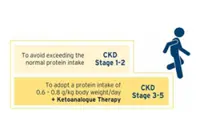PETALING JAYA: Almost 9,000 new kidney patients are registered annually, and they require dialysis treatment, says the Health Ministry.
The prevalence of chronic kidney disease (CKD) in Malaysia has been on the rise, it said.
Already a subscriber? Log in
The Star Festive Promo: Get 35% OFF Digital Access
Cancel anytime. Ad-free. Unlimited access with perks.
Related stories:
Follow us on our official WhatsApp channel for breaking news alerts and key updates!
Thank you for your report!





